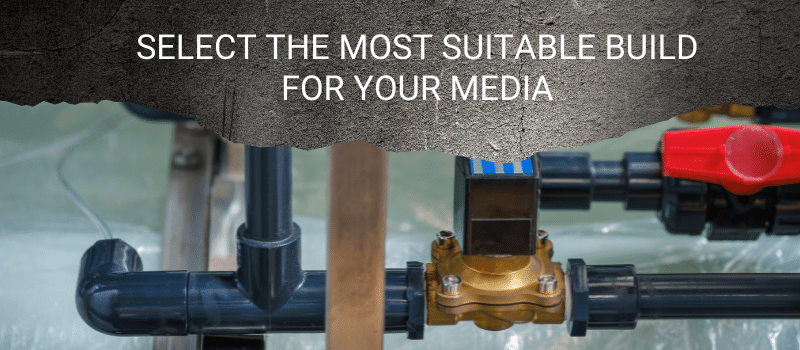Written by Industrial Stores Staff 13/08/22

We’ve all been there—wondering why the new solenoid valve failed only hours into the job.
And it was heartbreaking to discover that the half-priced valve we bought online came without surge protection and now its core is all burned out.
“But it looked genuine, so what did we miss?”
Well, to save you from similar future headaches, we’ll discuss three durable solenoid valves with protective features, such as explosion-proof casings and elastomer seals. As we go over them, you’ll also learn:
There are several alternatives for solenoid valves available for domestic and commercial use, including:
Let's go through a few solenoid valves and their features in more detail…
The Asco 8220 solenoid valves are perfect for:
These valves are forged from brass with stainless steel and contain PTFE internal parts, ensuring their resilience to the high temperatures and pressure from hot water and steam. For instance, the Asco 8220 can withstand up to 125 pounds of steam pressure, giving you longer usage cycles between replacements.
Learn more about the Asco 8220 by checking out its reviews and latest price.
The Asco S262 solenoid valve is used to ventilate gas combustion systems in heating equipment.
The valve allows you to safely evacuate gas from a combustion system if a leak occurs while the system is off.
This is possible because the S262 operates under zero differential pressure, meaning it’s unaffected by low-pressure conditions inside a system.
Learn more about the Asco S262 series by checking out some of its reviews and the latest price.
The Asco 8262 series is a general service solenoid valve with applications spanning numerous industries.
This wide use is down to the Asco 8262’s configurable nature. The valve is configurable to perform specialized tasks, such as automated liquid gas control through an explosion-proof enclosure and water control through a watertight casing.
Learn more about the Asco 8262 by checking out its reviews and the latest price.
The following table summarizes the main features of the solenoid valves discussed above.
Piloted solenoids are electromechanical valves that operate using the differential pressure of a medium such as water within its inlet and outlet ports.
As such, these valves mainly work with a medium flowing in one direction, which generates differential pressure, such as hydraulic oils and compressed air.
Because pilot solenoid valves use differential pressure to operate, they don’t require much energy to function. For instance, the GC S201 pilot valve only uses 10 watts of electricity—equivalent to an energy-saving fluorescent light bulb.
Low power consumption means pilot solenoid valves generate less heat in their coils. This makes them safer for hazardous conditions since the valves are less likely to trigger an explosion through excessive heat dissipation.
This is why pilot solenoid valves such as the Bray 63 are used in environments classified as division 1—an atmosphere with flammable substances in the form of gas, vapor, or mist under normal conditions.
The following table compares the current market prices of the solenoid valves discussed above.
Asco valves have a long-standing reputation for having a high-quality build and excellent performance across a wide range of applications.
Here are more common talking points about Asco solenoid valves:
"Our Company used Asco valves in many projects. I am very satisfied with the quality and performance of the products."
– Hanex
"Stable solenoid. Stays nice and cool even in a hot environment. Works great with propane and water."
– Matt, United States
"These seem to be the longest-lasting brand I have tried and the coil is easy to replace when it fails."
– Woody givens, United States
Several factors contribute to the eventual failure of a solenoid, such as:
Some of the most frequent problems associated with solenoid valves include:
There are two types of leakages associated with solenoid valves: internal and external. Most solenoid valves experience external leakages, usually from:
So, there you have it—three excellent solenoid valves and their nifty features. Whichever option you go for, consider their:

With these considerations in mind, head over to Industrial Stores and check out our huge collection of high-quality solenoid valves from various brands.
Along with an impressive catalog, Industrial Stores offers stellar customer service to guide you through your purchase. You’ll save time and money with a few tips from our eager expert team.
Share on Facebook:
